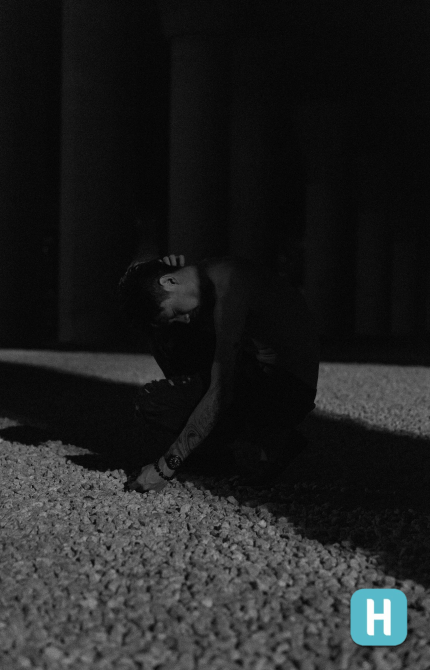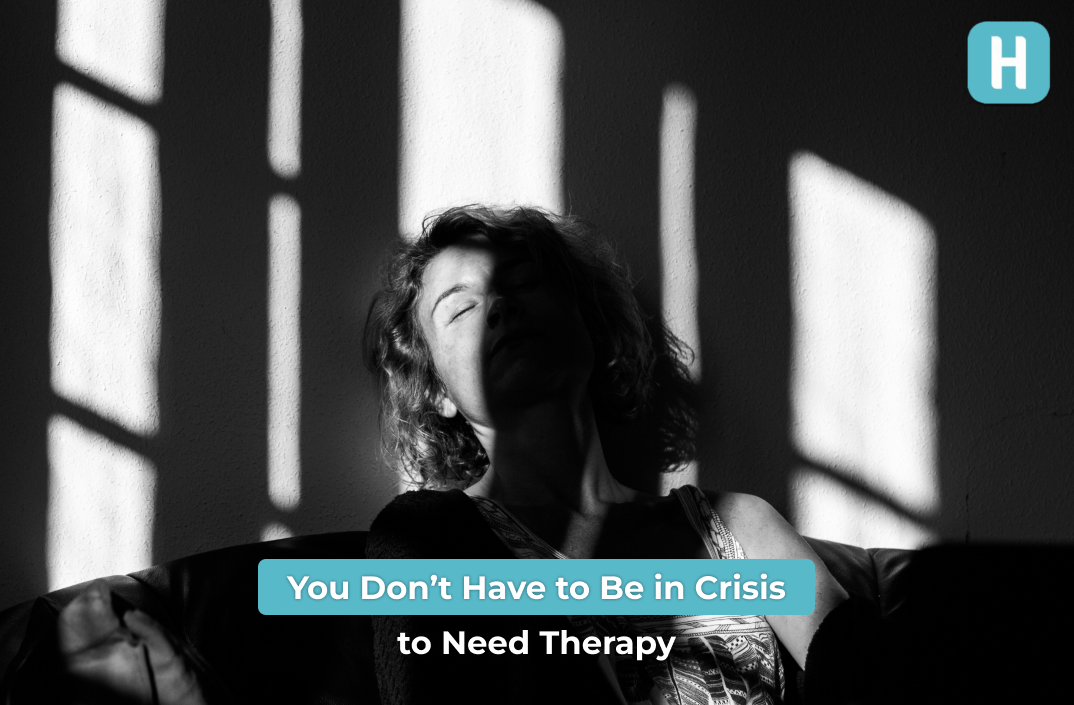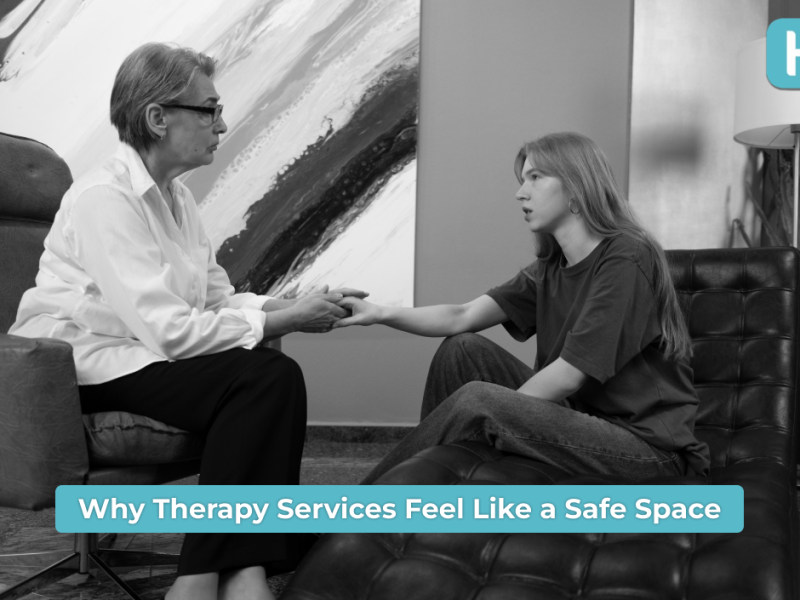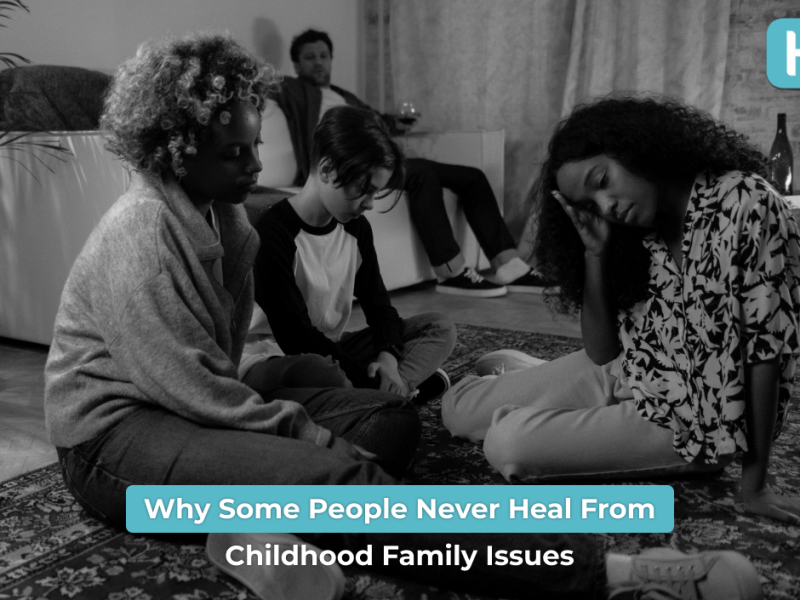Most of us were raised to think therapy is only for people who are falling apart.
Like you have to be crying non-stop, in the middle of a panic attack, or going through something tragic to earn the right to talk to a therapist.
But guess what?
- You don’t have to be in crisis to need therapy.
- You don’t have to be on the verge of breaking.
- You don’t need some dramatic reason.
- You don’t need to “prove” your pain.
If you’re waking up every day feeling numb, lost, stressed, or just off, that’s enough. That’s valid. That’s reason enough to reach out.
“I’m not in a crisis, so maybe I’m overreacting…”
Let’s stop right there.
- You’re not overreacting just because your life doesn’t look like a disaster on the outside.
- You could be doing okay at work.
- You might be smiling in front of your friends.
- You might even be posting selfies and going to events.
And still… something inside feels like it’s crumbling. Quietly. Slowly. Secretly. That doesn’t mean you’re dramatic. It means you’re human. And still, we wait until we hit that invisible breaking point for needing therapy, thinking that only “serious” issues deserve help. We ignore the little signs. We keep going. We push through. Until we can’t anymore.
Signs You Need Therapy Immediately
Here’s the thing. Not all mental health struggles come with sirens and screaming.
Some show up in soft, sneaky ways.
- You’re tired all the time but can’t sleep well.
- You keep snapping at people you love, then feel bad about it.
- You feel guilty for resting, or for saying no.
- You’ve lost interest in the stuff that used to light you up.
- You’re always worrying about something — big or small.
These are signs you need therapy immediately, even if you don’t feel like you’re “in crisis.” Because your body is talking. Your mind is waving red flags. And you deserve to listen.
Not Every Crisis Looks Like a Meltdown
You don’t have to be crying in the shower or skipping work to be in trouble.
Sometimes, a mental health crisis looks like:
- Being too tired to care.
- Feeling invisible in every room you enter.
- Going through the motions but feeling nothing.
- Thinking, “I can’t keep doing this,” multiple times a week.
Let’s call it what it is.
Mental health crisis warning signs aren’t always explosive. Sometimes, they’re quiet. But that doesn’t make them less dangerous. You don’t have to wait until you’re curled up on the floor with your heart racing before you say, “I need help.” You don’t need a crisis to need therapy. In fact, therapy works best before things fall apart.
When Is It Time to Talk to Someone?
Here’s an honest answer: if you’re asking this question, it’s probably already time.
But if you’re looking for clarity, here are a few examples of when to seek emergency therapy:
- You’re having thoughts about hurting yourself
- You feel like you’ve completely lost control
- You can’t stop reliving something painful
- You feel like you’re one bad day away from snapping
- You’re scared of what you might do if this keeps going
Please don’t wait for things to get “bad enough.” You don’t have to earn your breakdown. You just have to care enough about yourself to say, “I don’t want to live like this anymore.”

So, How Do You Know If You’re in a Psychological Crisis?
Good question.
Most people don’t even realize they’re in one — they just think they’re being lazy, emotional, or failing.
Here’s how to know if you’re in a psychological crisis (even if you look fine on the outside):
- You can’t concentrate
- You’re emotionally numb or overwhelmed by everything
- You’re isolating yourself from everyone
- You don’t feel like yourself anymore
- You keep thinking, “What’s the point?”
If any of this sounds like your daily life — it’s not something to brush off. This is a kind of crisis. One that’s easy to hide from the world but hard to live through. You don’t need permission to take care of your mind. You just need to believe that your peace matters.
Therapy Isn’t Just for the Bad Days
Let me say this loud for the people in the back:
Therapy isn’t just for the broken moments.
It’s for the confusion. It’s for the “I don’t know what’s wrong, but something is” days. It’s for figuring out who you are without all the noise.
You can go to therapy to:
- Set boundaries
- Understand your triggers
- Talk through past pain
- Break patterns you didn’t even realize you had
- Learn how to love yourself again
That’s not drama. That’s healing. And you don’t have to be in crisis to need therapy.
Let’s Talk About Prevention — Not Just Survival
We don’t wait until our car breaks down to take it to the mechanic. We don’t wait until our house is on fire to check the smoke alarm. So why wait until we’re falling apart to check in on our mental health?Therapy isn’t about waiting for disaster. It’s about learning how to spot the storm before it hits. It’s about protecting your peace — not just repairing it.
It’s Okay to Ask for Help Before You “Need” It
- You’re not weak.
- You’re not dramatic.
- You’re not a burden.
- You’re a person who feels deeply.
Who carries more than people realize.
Who shows up, even when it hurts.
And that is exactly why you’re allowed to ask for help.
- You don’t need a crisis to need therapy.
- You just need to know that your story is worth telling, and your heart is worth healing.
You Don’t Have to Earn Your Pain
Read that again:
You don’t have to earn your pain.
You don’t need to justify why you’re struggling. You don’t have to convince anyone — not even yourself — that your feelings are valid. If it hurts, it hurts. If you’re tired, you’re tired. If something feels off, that’s all the reason you need. Because getting help isn’t a sign that you’re falling apart. It’s a sign that you finally love yourself enough not to.
Maybe You’re Functioning, But You’re Not Living
Let’s talk about a quiet kind of pain — the one where you’re technically fine. You’re not curled up crying every night. You’re getting through your days. People see you smiling. You’re showing up for work, your kids, your partner, your responsibilities.
But inside? You feel… blank. Disengaged. Like you’re floating just a little outside of your life. You’re functioning, sure. But you’re not really living. And here’s something most people don’t tell you:
Even that feeling is enough to go to therapy.
You don’t need to be falling apart to say, “I think I need someone to talk to.” Because sometimes, the most dangerous place to be is in-between — not broken, but definitely not okay either. Crisis to Need Therapy That’s the grey zone that often hides a psychological crisis. You’re not hitting the floor in pieces, but you’re also not feeling whole.
Therapy Isn’t Just for “Big” Problems
One of the most heartbreaking lies people believe is:
- “Other people have it worse, so I shouldn’t complain.”
Stop. Right there.
Yes, someone out there may have bigger trauma or louder pain. But that doesn’t mean yours doesn’t count.
Your hurt is still real.
Your struggle is still valid.
And no, you don’t need some dramatic backstory to start therapy.
You don’t need a diagnosis.
You don’t need to explain why you’re not okay in a way that makes other people nod in approval.
- You don’t need a crisis to need therapy.
You just need a heart that’s tired of carrying things alone.
Weight You’re Carrying Might Not Be Yours
Here’s something else that therapy helps with — something most of us don’t realize until it’s too late:
A lot of the pain we carry isn’t even ours. We’re holding onto childhood wounds. Carrying other people’s expectations. Living under the weight of emotional neglect we were taught to normalize. You may not realize how heavy it is until someone finally says, “That should’ve never happened to you.”
And when they do? It’s like a knot in your chest finally starts to loosen. That’s what therapy offers.
Not just a space to talk — but a space to see your story clearly, and finally start putting down what was never yours to carry.
If any part of you resonates with that… It’s time.
- You don’t need a meltdown. You don’t need chaos.
- You don’t need a crisis to need therapy.
- You just need to know: your story matters. And it deserves a safe place to land.
But I Should Be Able to Handle This…
This one hits hard.
So many people suffer silently because they think needing help means they’ve failed.
Especially if you’re someone who’s always been the strong one. The helper. The problem-solver.
You tell yourself:
- “I’ve been through worse.”
- “This isn’t a big deal.”
- “Other people need therapy more than I do.”
- “I can handle it. I always do.”
But here’s the real talk:
- Just because you’ve handled it doesn’t mean it didn’t hurt.
- Just because you survived it doesn’t mean it didn’t change you.
And handling everything alone doesn’t make you strong — it just makes you tired. You don’t have to wait until you break. There doesn’t need to be a single defining breaking point for needing therapy. You’re allowed to get support before you burn out. In fact, that’s the smartest time to get it.
Lie of “I’ll Deal With It Later”
Let’s talk about avoidance.
We tell ourselves we’ll deal with it later — the pain, the thoughts, the exhaustion. But “later” usually turns into months. Then years. Then one day something small happens — a fight, a comment, a forgotten text — and it breaks you. And you wonder why such a tiny thing made you fall apart. It didn’t. What broke you was everything you pushed aside. All the feelings you buried. All the warning signs you ignored. The outburst was just the final straw. This is why therapy isn’t just a reaction. It’s prevention.
It’s the pause before the crash.
Because how to know if you’re in a psychological crisis isn’t always about one moment — it’s about all the buildup you’ve been carrying alone.
Grief, Change, and Unseen Losses
Another overlooked reason to seek therapy?
Losses that no one sees.
Maybe your relationship ended. Maybe you changed careers, moved cities, lost a friend, let go of a dream. And while people might not call that a “crisis,” it still hurts. Deeply. You feel like you’re supposed to be grateful. You’re told, “You’ll bounce back!” You hear, “At least you’re free now.” But inside, you’re grieving.
And no one sees it. This is where therapy holds space for the quiet stuff. The heartbreak that doesn’t make headlines. The confusion that doesn’t have words yet. You don’t need a mental health crisis warning sign to feel like something is missing. You don’t need to explain why you’re sad. You don’t need a crisis to need therapy. You just need to know you’re allowed to feel all of it — even the parts the world doesn’t validate.

How Generational Trauma Plays a Role?
Let’s get into something real — especially for those of us raised in households that didn’t “believe” in therapy.
If you grew up hearing things like:
- “We don’t talk about feelings.”
- “Just suck it up.”
- “What happens in this house stays in this house.”
Then chances are, you’ve been conditioned to suppress.
But generational trauma doesn’t just disappear because we pretend we’re okay.
It passes down — silently — through habits, fears, shame, and pain.
And here’s the wild thing:
When you go to therapy, you don’t just heal yourself — you stop that cycle from repeating.
You become the turning point.
That’s not weakness. That’s courage.
So no — you don’t need a crisis to need therapy.
Sometimes you just need to be the one who says, “It ends with me.”
But What If I Don’t Know What to Say?”
This is so common, and honestly… it’s okay. You don’t need to walk into therapy with a script.
You don’t need to know the “right” words.
You don’t need a perfect reason.
You can walk in and just say, “I don’t feel like myself lately.”
Or, “I don’t know why I’m here, but something feels off.”
That’s enough.
Therapy isn’t about performing.
It’s about unpacking, exploring, and healing at your own pace.
Even if all you do the first session is cry or sit quietly — that’s still progress.
That’s still showing up for yourself and Crisis to Need Therapy.
Because again — say it with me — you don’t need a crisis to need therapy.
What If the People Around You Don’t Get It?
This part hurts.
Sometimes, the people closest to you — your family, your friends, even your partner — don’t understand why you’d want therapy.
They say things like:
- “You’re fine.”
- “You just need to stay busy.”
- “Therapy is for people who can’t cope.”
- “You’re too emotional.”
But here’s the truth:
You don’t need their permission to heal.
This is your life.
Your mind.
Your experience.
You don’t need to wait for others to understand it before you honor what you feel.
When to seek emergency therapy? When the silence starts to hurt more than the judgment.
And when that moment comes? Go. Don’t look back because Crisis to Need Therapy !
You’re Not Too Much. You’re Just Overdue for Care.
Let’s leave it here — with the words I wish more people heard:
You’re not dramatic.
You’re not broken.
You’re not weak.
You’re simply a person who has carried too much for too long, without enough support.
And now, you’re ready to give yourself what you’ve needed all along: care, safety, and space.
You don’t need a crisis to need therapy.
You just need a moment of truth — and this is it.
Need a Helping Hand?
If you’re quietly struggling, Helply is here. No waiting lists. No shame. Just real, compassionate therapists who get it. Whether you’re in crisis or just want to talk things through, we’ll meet you where you are — no questions asked about the Crisis to Need Therapy.
FAQs
- Do I really need therapy if I’m not falling apart?
Yes, you absolutely can — and probably should — go to therapy even if you’re not in a full-blown crisis. If something feels “off,” if you’re feeling disconnected, overwhelmed, or just tired of carrying everything on your own… that’s enough reason. Therapy isn’t just for people who are breaking down — it’s also for those trying not to.
- What if I don’t know what’s wrong, but I still feel heavy inside?
That’s exactly the kind of thing therapy can help with. You don’t need to walk in with all the answers. Sometimes you just need a safe space to explore the thoughts you’ve been pushing down. The “I don’t know what’s wrong with me” feeling is often the first clue that something deep inside needs care.
- How do I know if I’m in a mental health crisis even if I’m functioning?
If you’re showing up to life but constantly feeling drained, numb, anxious, or on edge — that is a kind of crisis. Psychological burnout and quiet emotional breakdowns are real, even if they’re not loud or dramatic. You deserve support, even if your world hasn’t completely fallen apart.
- What if my family or friends think therapy is unnecessary?
You’re not doing this for them. You’re doing it for you. Healing is personal. And just because the people around you don’t understand it doesn’t mean your pain is invalid. You don’t need permission to feel better. You need courage to take the first step — and you’ve already got that.
- Is it okay to go to therapy even if my problems feel “small”?
Absolutely. There’s no such thing as a problem too small for therapy. If it’s heavy on your heart, it matters. Don’t wait until your emotions become unbearable. Therapy is one of the most powerful things you can do before you reach your breaking point.


